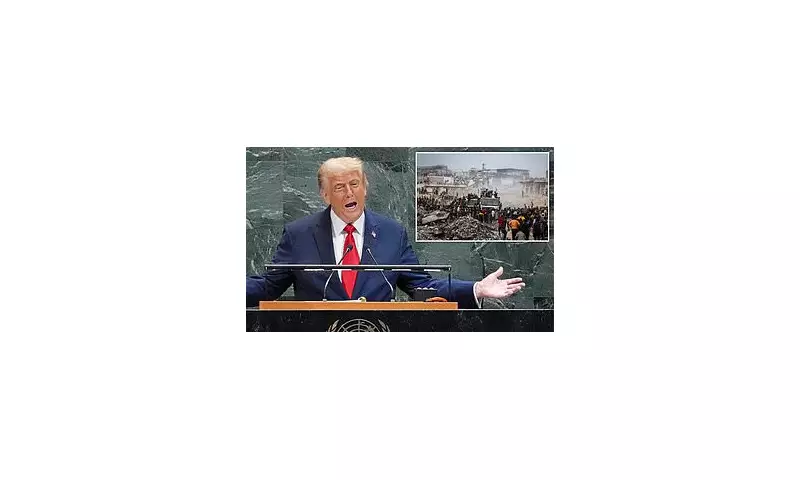
A damning investigation has exposed what aid officials are calling a 'catastrophic failure' in the United Nations' handling of Gaza's humanitarian crisis, with desperately needed supplies languishing in storage while civilians face unprecedented deprivation.
The Aid That Never Arrived
Despite international pledges and visible efforts, millions of pounds worth of humanitarian aid remains stranded in a bureaucratic quagmire, creating what one frustrated aid worker described as 'the world's most expensive parking lot.' Essential medical supplies, food parcels, and shelter materials are sitting unused mere miles from where they're desperately needed.
Coordination Collapse
Multiple sources within humanitarian organisations have revealed that internal UN disputes and failed coordination between agencies have created paralysing delays. The very system designed to streamline aid delivery has become its greatest obstacle, with overlapping responsibilities and territorial disputes preventing life-saving assistance from reaching those in need.
Storage Facilities Overflowing
Satellite imagery and eyewitness accounts confirm that storage facilities near Gaza's borders are operating at maximum capacity, with new shipments arriving daily while distribution remains sporadic at best. The contrast between overflowing warehouses and empty markets in Gaza has become increasingly stark.
Human Cost Mounts
Meanwhile, Gaza's residents face increasingly dire conditions. Hospitals report critical shortages of basic medical supplies, families struggle to find adequate food and clean water, and shelter remains scarce for those displaced by ongoing conflict. The gap between available aid and distributed assistance continues to widen daily.
International Response Stalled
Donor countries have expressed growing frustration with the situation, with several threatening to review their funding commitments if distribution doesn't improve significantly. Diplomatic efforts to break the logjam have so far yielded little tangible progress, leaving the international community watching helplessly as the crisis deepens.
The UN's failure to effectively coordinate and distribute available aid represents one of the most significant humanitarian management failures in recent memory, raising serious questions about the organisation's capacity to handle complex emergency situations in conflict zones.






